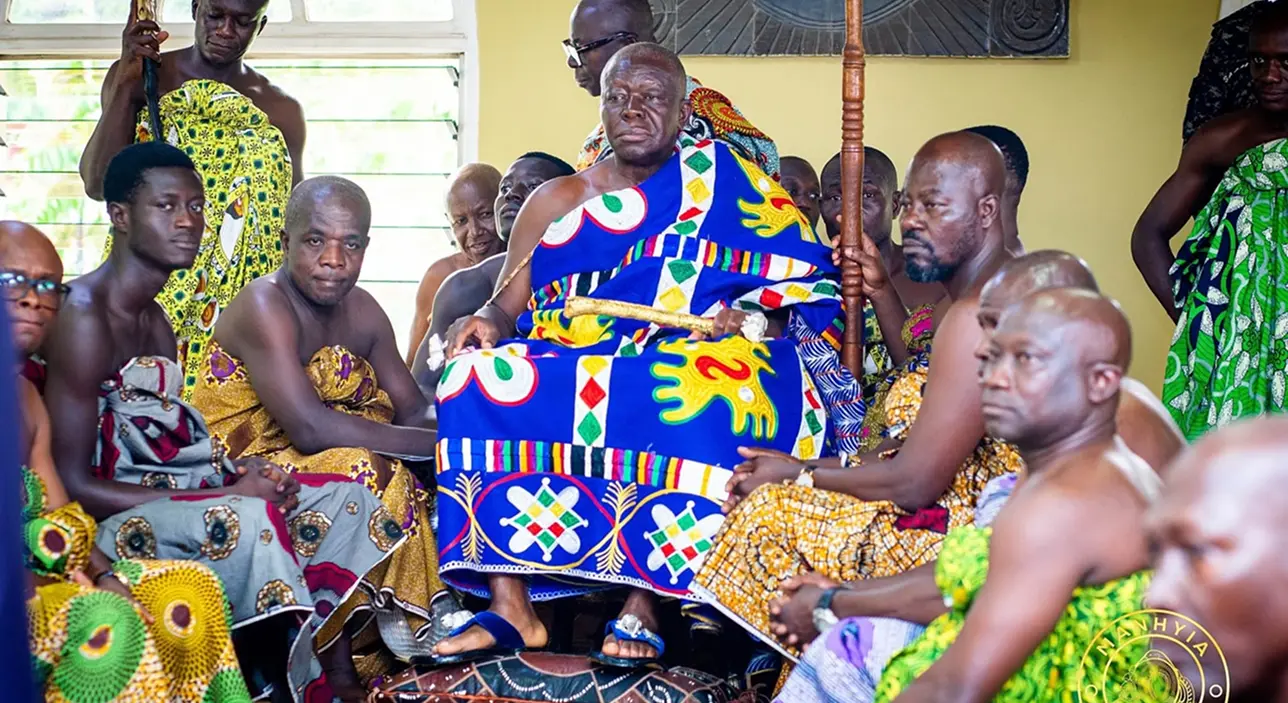
RESOLVING THE KNUST CRISIS & HELPING THE DISTRESSED YOUTH
Resolving the KNUST Crisis On Monday, October 22, 2018, students of the Kwame Nkrumah University of Science and Technology (KNUST), Ghana’s premier science and technology institution, marched in protest led by the Students Representative Council (SRC).
They claimed unfair treatment by the university authorities and reported unwarranted assaults on some of their colleagues by security officers who were supposed to protect them. What began as a peaceful demonstration quickly turned violent, leading to threats to individuals and public order, as well as damage to public, school, and private properties. This incident was regarded as the most violent protest by KNUST students since 1966.
During the unrest, security personnel on campus abandoned their posts, and many of their facilities were destroyed. Overall damages were reported to be around 1.7 million Ghana Cedis. Unable to restore order, the government and KNUST authorities shut down the university indefinitely and ordered students to return home while they sought to address the unrest. Subsequently, the government dissolved the university’s Governing Council and swore in an interim council composed of new members, excluding the Vice Chancellor.
This interim council was tasked by the government with reopening the university within 14 days. However, the University Teachers Union, the SRC, and other stakeholders protested the formation of the new council. Members of the Teachers and Educational Workers Union of Ghana (TEWU) initiated strike actions against the interim council, leading lecturers to withdraw their services. In response, the government dissolved the interim council. As tensions rose among university authorities, the student body, parents, guardians, alumni, and student organizations from other universities, the tertiary education system in Ghana faced the potential for widespread unrest.
National political divisions further complicated the situation, with various claims and counterclaims regarding responsibility and the means of resolving the crisis. To address the chaos, the government dispatched a high-powered delegation, including the Minister of Education, the Minister of National Security, and the Ashanti Regional Security Council, to engage with different KNUST stakeholders in search of solutions. During this turmoil, Otumfuo Osei Tutu II, Asantehene and Chancellor of the university, was away on a short foreign trip.
However, upon his return to Kumasi, he immediately began constructive discussions with all stakeholders—students, lecturers, university administration, government officials, and workers’ unions—to diffuse the tension and address various interests. He proposed a reconstitution of the council, which was accepted by all parties involved, leading to the restoration of peace and the prompt reopening of the university for the continuation of the semester’s academic activities. Having successfully calmed the tensions, Otumfuo established a Committee of Inquiry to investigate the student disturbances.
Chairperson : Her Ladyship Justice Rose Owusu (Retired Justice of the Supreme Court of Ghana) Member : Very Rev. Ama Afo Blay (Retired Director General of the Ghana Education Service) – Member: Mr. David Adu Osei (Ashanti Regional Commander, Bureau of National Investigations – BNI)
Secretary : Mr. Kofi Owusu (Registrar, Ashanti Regional House of Chiefs)
The Committee was given the following Terms of Reference:
i. To investigate the outbreak of violence on the KNUST campus on October 22, 2018, and determine all circumstances, both immediate and remote, that led to the event.
ii. To consider any matters related to the administration of the university that the Committee deems relevant to the investigation.
iii. To make recommendations necessary to help the university prevent such incidents in the future.
By employing his proven conflict resolution skills, Otumfuo Osei Tutu II was instrumental in resolving the crisis and restoring peace among the various groups involved. What could have escalated into a complete breakdown of tertiary education with severe consequences for the nation was calmly handled by the Asantehene.
